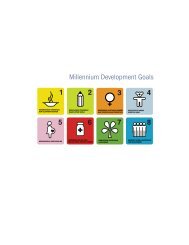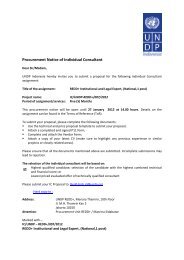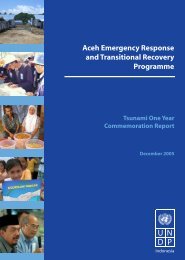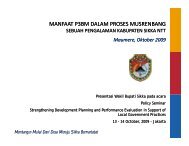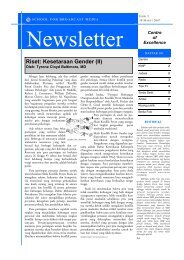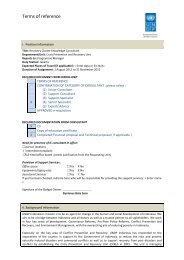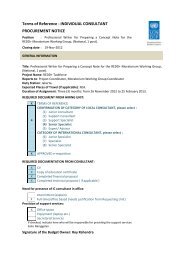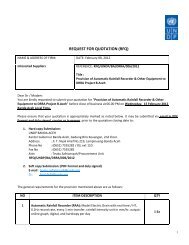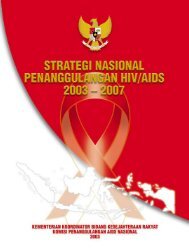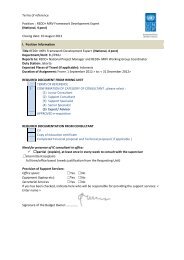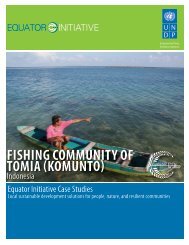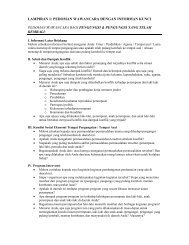English - UNDP
English - UNDP
English - UNDP
- No tags were found...
Create successful ePaper yourself
Turn your PDF publications into a flip-book with our unique Google optimized e-Paper software.
Indonesia Progress Report on the Millenium Development Goalstrend has not changed much over the years (Figure1.8 and Table 1.6).Figure 1.8. Proportion of population below minimum level ofdietary energy consumption• Strengthening early warning systems for food andnutrition, so there will be preparedness for criticalperiods• Improving the quality of nutrition and food services,and integrating them into poverty-reductionprogrammes• Enforcing sanctions on violations of laws and regulationson food and nutrition, among them laws onfood fortification, advertising and labellingChallengesThe major challenges in reducing malnutrition andunder-nourishment will be ensuring that the poorpopulation, especially women and young children,have adequately nutritious food at an affordableprice, and reaching this population with interventionsfor nutrition education.Policies and programmesPolicy directions. Policies to address hunger arereflected by trends in community nutrition and thefood sector, where the focus is on developing andstrengthening food security systems based on adiversity of food sources, and on local institutions,cultures and coping mechanisms. The purpose is toensure the availability of food with adequate nutritionalquality at an affordable price.Food and nutrition policies. The priorities are:• Empowering families and communities—especiallypoor families and other vulnerable groups—to develop self-sufficiency in food through community-basedactivitiesProgrammes. These aim to address hunger andmalnutrition and improve household food security,and include:• Providing complementary feeding for infants andchildren under five years of age, and supplementaryfeeding for pregnant women from poor familiesor households lacking food security• Promoting and “socializing” 2 eating patterns thatare balanced and healthy• Producing and diversifying foods, including localand affordable alternatives• Educating families on nutrition and caring for children• Improving the efficiency of food distribution systemsto ensure household food security• Developing community self-sufficiency in food• Improving early warning systems for food securityto alleviate the impact of natural disasters andconflicts on vulnerable groups• Establishing supporting regulations for the Lawon Food (No. 7/1996) and implementing pro-poorregulations on food security and nutritionNotes1 BPS—Statistics Indonesia, 2003. Statistical Year Book ofIndonesia 2002.2 The terms “socialize” and “socialization” (sosialisasi), as used inIndonesia, mean: promoting an idea or programme, usually bydisseminating information or mobilizing communities.31



